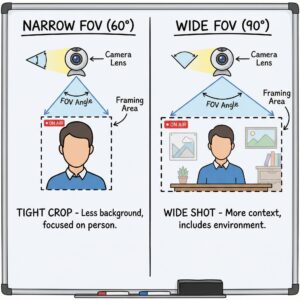
“`html
Big Lies About Online Gaming You Should Know

Online Gaming Today is Safe
The new safe online gaming is not like the old wrong ideas. Legal online casinos must follow very strict rules. They use high-end safety steps and tech to keep players out of harm and make sure all games are fair.
Key Facts About How Online Casinos Work
Random number generators (RNGs) control all digital casino games, checked often to be sure they are right. While the house edge is real, it just means the usual casino win built into each game, not that games are set up wrong.
Security and Player Safety
New gaming sites have strong safety steps, such as:
- Safe money process
- Checking who you are
- Choices to stop playing
- Help for safe gaming
- Watch on accounts
Money Deals and Taking Cash Out
Online payment ways change how money moves in online gaming. E-wallet cash outs can happen in 24 hours, but old bank plans may take 3-5 days. Sites keep your money safe in a separate place.
More Places With Rules
Places with rules for gaming grow around the world, with laws to:
- Help customer needs
- Make sure operators play fair
- Get money from taxes
- Stop illegal gaming
- Push safe gaming habits
This has made a safe, clear spot for gaming fun within law limits.
The Real Story of Casino Odds
Learn How Casinos and House Edge Work
The truth about how online casinos run tells us they do not always win.
Casinos do have a math edge from the house edge but do not take every bet or all of the player’s money.
The idea is built on math odds, not fixed games.
Random Number Generators and Fair Chance
Legal online casinos use high-end Random Number Generators (RNGs) to keep games fair.
These tech parts are tested much and passed by independent checkers, so each game result is really by chance.
This tech plan lets wins happen, though over time, the odds favor the house.
House Edge Is Different in Each Game
Each casino game has a different level of house edge:
- Blackjack: Less than 1% with smart play
- Roulette: Around 5%
- Slot machines: Usually 2-15%
Long Edge vs. Quick Wins
The casino’s plan works on a long-term edge, not set games.
Think of it as a coin toss – while the house might win 51% of the time, players still have a 49% chance on single bets.
This math lets players have good runs, even though the long odds favor the house.
Smart Gaming and Odds
Clever betting means understanding these plain odds.
Players should see online casinos with real hopes and know that while quick wins can happen, the house keeps the math edge over time 토토사이트
Good gaming means setting hard limits and never betting more than you can lose.
The Truth About Game Fairness

Understand Online Casino Rules and Fairness
Online casino games follow strict rules to keep them fair and safe. Talk of set games often comes from not getting how things work Gambling Worth It for Beginners in 2025
Legal game places must follow these rules and get checked often to keep their right to run.
The Tech That Makes Games Fair
Random Number Generators (RNGs) are key for fair online casinos. These systems:
- Get tested all the time and passed
- Result in really random game results
- Are checked by labs
- Follow global game rules
Outside Checks and Okays
Top check groups like eCOGRA and iTech Labs do deep checks on:
- How games work
- How money payouts are set
- System safety
- Return-to-Player (RTP) rates
House Edge vs. Set Games
The casino house edge is a math plus in games, not like rigging. This edge:
- Is clear and can be figured out
- Matches real casino levels
- Follows rules
- Keeps steady payout rates
Safe Online Gaming
Players can check casino truth by looking at:
- Real game licenses
- Shown RTP rates
- Okays from outside
- Regular check reports
- Rule-following records
This full check system makes sure games are fair and keeps gaming sites honest.
Breaking the Myth: Online Gaming and Problem Gaming
Know Safe Online Gaming
Online gaming is not just for those with gaming problems; studies show most people play in a good and fun way.
Research finds that smart players stick to budgets and use tools from gaming sites, they see fun in gaming, not a need.
Better Tools for Safe Play
Today’s online gaming sites have better tools for safe play than old ones. Key actions include:
- Options to take breaks
- Limits on putting in money
- Alerts to wake you up to truth
- Ways to watch how you act
- Controls on play time
The Real Look at Online Gaming
Problem gaming hits about 1-3% of online players, while most play in a good way. Casual players often join:
- Social poker games
- Bets on sports just for fun


